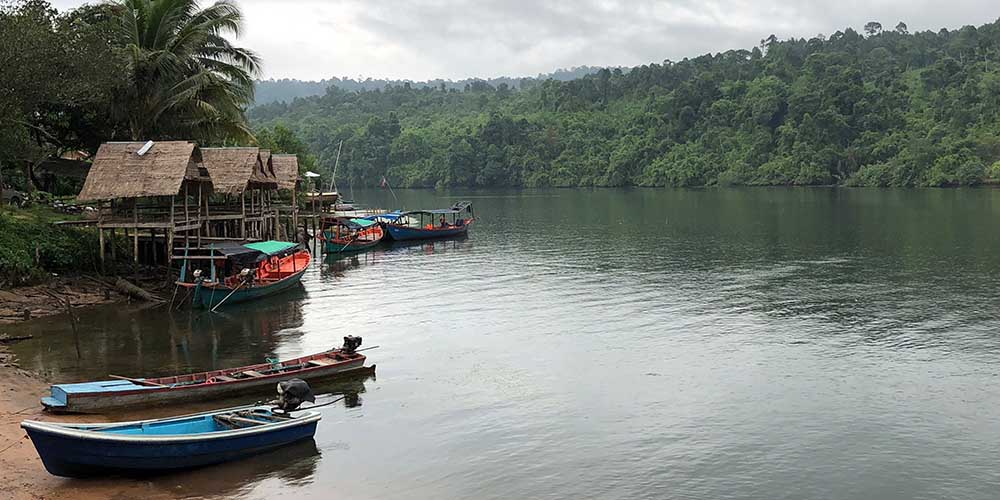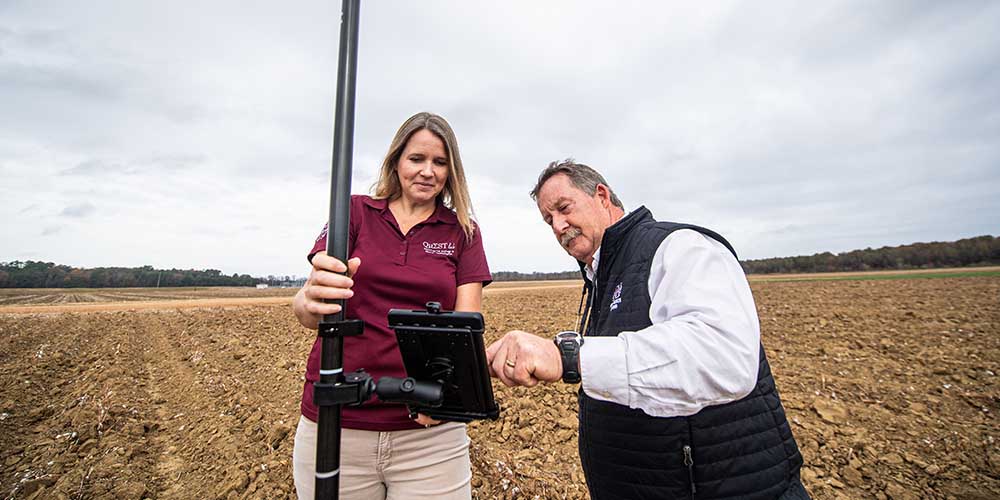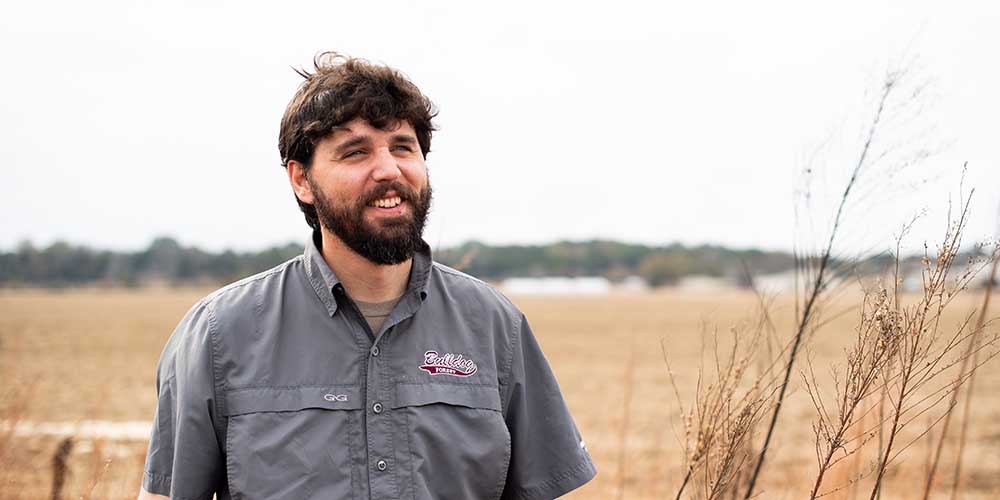Related Stories
Habitat Stories

Forest Health Across the Globe
According to the World Wildlife Federation, eighty percent of the world’s terrestrial plant and animal species make their home in the forest and a square kilometer of forest may be home to more than 1,000 species. That’s why scientists in the Forest and Wildlife Research Center have partnered with the U.S. Forest Service International Programs over the past several years to help improve vital forests globally. FWRC scientists have embarked on a three-year grant to study forest health and ecosystem services across the globe in the U.S., China, Cambodia, and Argentina, among other locations. Dr. Andy Kouba, professor and head of the Department of Wildlife, Fisheries and Aquaculture, is the grant’s principal investigator and is involved in two of the grant’s projects, both in China. The first project, focused on giant pandas, includes Dr. Carrie Vance, associate research professor in biochemistry, molecular biology, entomology and plant pathology and MAFES scientist, and Dr. Guiming Wang, wildlife, fisheries and aquaculture professor and FWRC scientist.
The other project reintroduces Chinese giant salamanders back into the wild. Dr. Wes Neal, extension and research professor in wildlife, fisheries and aquaculture, alongside Dr. Peter Allen, professor, are on a project in partnership with the U.S. Forest Service International Programs, the Wildlife Conservation Society, and the Cambodian government to help start a community fishery with villages along the Sre Ambel River in Cambodia. Dr. Sandra Correa, wildlife, fisheries and aquaculture assistant professor, received funding from the U.S. Agency for International Development, or USAID, and its Feed the Future Innovation Lab for Fish, housed at MSU, to measure the project’s efficacy and continue other efforts along the Sre Ambel River. The grant also supports research led by Dr. John Riggins, professor in biochemistry, molecular biology, entomology and plant pathology and MAFES scientist, who is studying the European wood wasp, an invasive species affecting pine forests in Argentina. This research is funded by the U.S. Forest Service International Programs, the Wildlife Conservation Society, and the USAID Feed the Future Innovation Lab for Fish.
2020

Strategic Conservation
Researchers at Mississippi State's Forest and Wildlife Research Center (FWRC) are developing a web-based tool called the CRP Menu to help farmers explore conservation options in the Farm Bill's Conservation Reserve Program (CRP). The tool allows farmers to create and compare conservation plans based on their goals and eligibility, aiming to simplify the process and provide personalized information. Building on the Strategic Conservation Assessment (SCA) tool, it will be adaptable for different regions and conservation issues. The team is using a social science approach, gathering input from farmers and stakeholders across 12 counties in eight states to shape the tool. After testing in these areas, the goal is to expand it nationally, improving farmer engagement, reducing barriers to participation, and enhancing conservation outcomes.
2023

Light a Fire, Save a Bird
Mississippi State's Forest and Wildlife Research Center (FWRC) is studying the impact of prescribed fire on the Bachman's sparrow, a ground-nesting bird whose population has declined due to habitat loss and fire exclusion. Dr. Mark McConnell leads the research, focusing on whether burning during the growing season (as opposed to the traditional dormant season) can help restore the bird's habitat. The study, conducted across 1,800 acres with 15 burn plots, found that a mix of both dormant and growing season burns benefits the sparrow. The team conducted bird surveys and vegetation assessments before and after the burns to understand how fire timing influences ground cover and sparrow populations. Dr. Kristine Evans contributed expertise on the bird's behavior and habitat needs.
The goal is to determine the best fire management strategies to support healthy Bachman's sparrow populations and improve conservation efforts for this species.